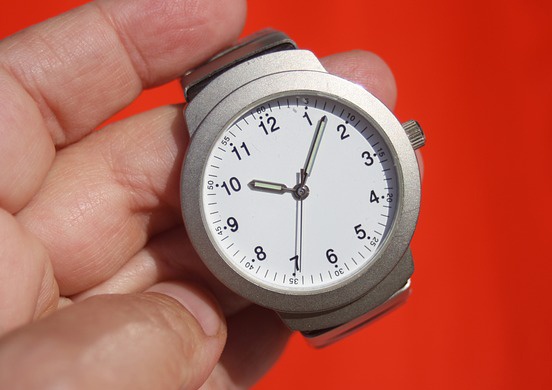For students who are already scoring high on the SAT, improvement can be an uphill battle. High scorers may need to use different strategies to get the most out of their studying and push themselves into an elite score range.
In this article, I'll go over what it means to be a high scorer and how high scorers can take their prep techniques to the next level.
What Does It Mean to Be a High Scorer?
You would be considered a high scorer if you’re consistently scoring an 1800 or higher on the SAT. “Consistently” means that you’ve taken at least two or three full official practice tests where you’ve scored 1800 or above. This indicates that you can expect similar scores on the real SAT. Your score puts you in the top 25% of scorers on the test.
Why Do High Scorers Need Different Strategies?
At this level, it’s likely that you’ve overcome significant problems with content knowledge and question comprehension and may be running into different roadblocks to a higher score. Often, high scorers struggle with careless mistakes and time issues that prevent them from earning the last few points that will get them into the 700-800 range on each section. They also may be having trouble with the hardest ten to twenty percent of questions on each test.
As a high scorer, you're getting to the point where you need to try and answer every question, so you can’t leave any stone unturned when it comes to mistakes on practice tests. It’s crucial to be picky about pinpointing your weaknesses and eliminating them.
 You've raised the bar, and now you have to figure out how to jump over it.
You've raised the bar, and now you have to figure out how to jump over it.
Strategies for High Scorers
Here are some strategies that high scorers might use to earn those last few points on the SAT. These strategies are not as appropriate for students who are scoring below a 600 on each section of the test. If you’re not into the high score range yet, take a look at this article on how lower scorers should prepare.
Strategy #1: Eliminate Careless Mistakes
High scoring students usually don’t have many content-based problems with the material on the test. The biggest problem for people who are already scoring high on the SAT is that they continue to make careless mistakes. A careless mistake is a mistake that you made because you rushed through the question or accidentally misread it. These are not mistakes that you made because you genuinely didn't understand the question at the time and figured it out later; they're mistakes that never should have happened in the first place. The barrier between you and a really great score might be a matter of reading more carefully or checking your answers at the end of each section.
It’s helpful to be aware of when your careless mistakes come up most frequently. You should take a practice test or two and see where you tend to slip up so that you can pay close attention to those types of questions in the future.
On math questions, a good way to eliminate careless mistakes is to circle or underline what the question is asking for so that you don’t forget. The SAT likes to be tricky by providing answers that students might get if they read the question incorrectly or don’t follow through on solving the whole problem.
If you suffer from careless mistakes on reading questions, you should always make a point of double checking your answers at the end of each section. Another good strategy for eliminating careless mistakes is to bubble in your answers at the end of each section. Circle your answer for each question in the test booklet, but wait until the end of the section to record it on your answer sheet. This saves time and will help you to avoid bubbling mistakes that can cost you major points.
 Making a careless mistake is like slipping on a banana peel; you can easily avoid it by paying attention.
Making a careless mistake is like slipping on a banana peel; you can easily avoid it by paying attention.
Strategy #2: Practice Good Time Management
If you’re a high scorer, you might have a tendency to rush through sections on the SAT. Although this will prevent you from running out of time, it can have negative consequences if you don’t read passages or questions carefully enough. Try taking a timed practice test so you can see where you stand on time management. If you’re left with a lot of extra time at the ends of sections but are still missing questions, you should try and force yourself to devote a little more time to each question and make a point of double-checking your answers.
If you’re consistently missing the last few questions because you can’t seem to get through the sections fast enough, you might consider revising your strategy in different ways. For the reading section, you should consider whether you’re reading passages in the most efficient manner. Some students read passages on the SAT very closely, which can work if you’re a fast reader, but usually isn’t the best strategy. I would recommend skimming passages to save yourself time and then going back to read specific details more closely if necessary.
Skipping difficult questions can also help with time pressure on any section. If you’re trying to earn a high score, you can go back to them on your second pass through the section. This strategy will alleviate a lot of stress and help you to manage your time more efficiently.
 We're told to manage our time, but doesn't time actually manage us? Think about it, man.
We're told to manage our time, but doesn't time actually manage us? Think about it, man.
Strategy #3: Master the Hardest Types of Questions
If you’re already getting high scores on the SAT, it’s possible that you’re being shut out from those last few points by the most difficult ten to twenty percent of questions on each section. We've written articles on the hardest questions for each section of the SAT. You can read these articles for a better understanding of how to get through these questions and think about them logically. Here are our lists of the hardest Writing, Math, and Reading questions.
I would recommend that you try to do each of the hard questions in these articles on your own first and see if you end up with the correct answer. If you answer incorrectly, skip to the solution, and try to solve it again on your own with the correct answer in mind. You might have an “aha” moment without reading our explanation, which is a step in the right direction if you hope to answer these types of questions independently on the real test. Working through difficult questions will help you to get better practice for similar situations on the test (and will make most other questions seem simple in comparison!).
It’s important to keep in mind that these lists of difficult questions might not be universally applicable. For most students, the questions on our lists will be some of the hardest on the SAT, but there are bound to be some disagreements. This is why it’s important that you also look carefully at where you tend to make mistakes on practice tests. Don’t assume that you’ll end up with a perfect score just because you can answer the questions on these lists! Pay attention to your specific weaknesses, whether they’re careless mistakes, time pressure, or questions in a certain content area.
 With some mental strength training, you can learn to manage even the most difficult questions relatively easily.
With some mental strength training, you can learn to manage even the most difficult questions relatively easily.
Strategy #4: Avoid Test Anxiety
You’re aiming for a very high score, and you only have so many chances to get it. That kind of pressure will make even the calmest person anxious. It’s ok to be a little nervous, but if you let your worries take over you could end up sabotaging yourself.
Skipping difficult questions initially can bring out a lot of anxiety in high scorers. If you do have to skip a question, remind yourself that it’s normal, you’ll come back to it, and you will probably have a clearer head once you’ve gotten through most of the easy questions in the section. You have every reason to believe that you can answer it correctly on your second try. Remind yourself that this is no more difficult than any of the practice tests that you aced.
 If it helps you to write the word fear and cross it out before the test, go for it.
If it helps you to write the word fear and cross it out before the test, go for it.
Strategy #5: Don’t Overthink Questions
Test anxiety can also cause high scorers to overthink simple questions. This is something you must learn to avoid, especially when it comes to the Reading section. The questions on the Reading section of the SAT are always based on information that is directly stated in the text. Don’t start to read between the lines or make assumptions about the information.
Your mind may be tempted to go off in a million directions if you’re struggling on a question. You should always bring yourself back to the simple truth that there is only one correct answer to each question, and it’s based solely on the facts presented to you.
 If your brain feels like this, take a minute to regroup.
If your brain feels like this, take a minute to regroup.
Conclusion
High scorers on the SAT who are hoping to improve even further will need to adopt strategies that directly combat the issues that are most common for them. High scorers often have problems with careless errors and time management, and they will need to be able to answer even the most difficult questions correctly if they hope to earn a great score.
Overthinking is also a big problem for those who are already scoring high on the SAT, so it’s important that you keep your cool during the test and avoid complicating simple questions. If you can understand your main weaknesses and use these strategies to combat them, there’s nothing stopping you from getting a perfect or close to perfect score!
What's Next?
Check out our articles on how to get an 800 on the Reading, Math, and Writing sections of the SAT. They will give you more specific strategies for improving your scores.
If you have very high SAT scores, you're probably looking at competitive colleges. Read this article to learn more about the most selective colleges in the nation and how you can improve your chances of acceptance.
Not sure how high to set your goals? Find out what a good SAT score for your college of choice might look like.












